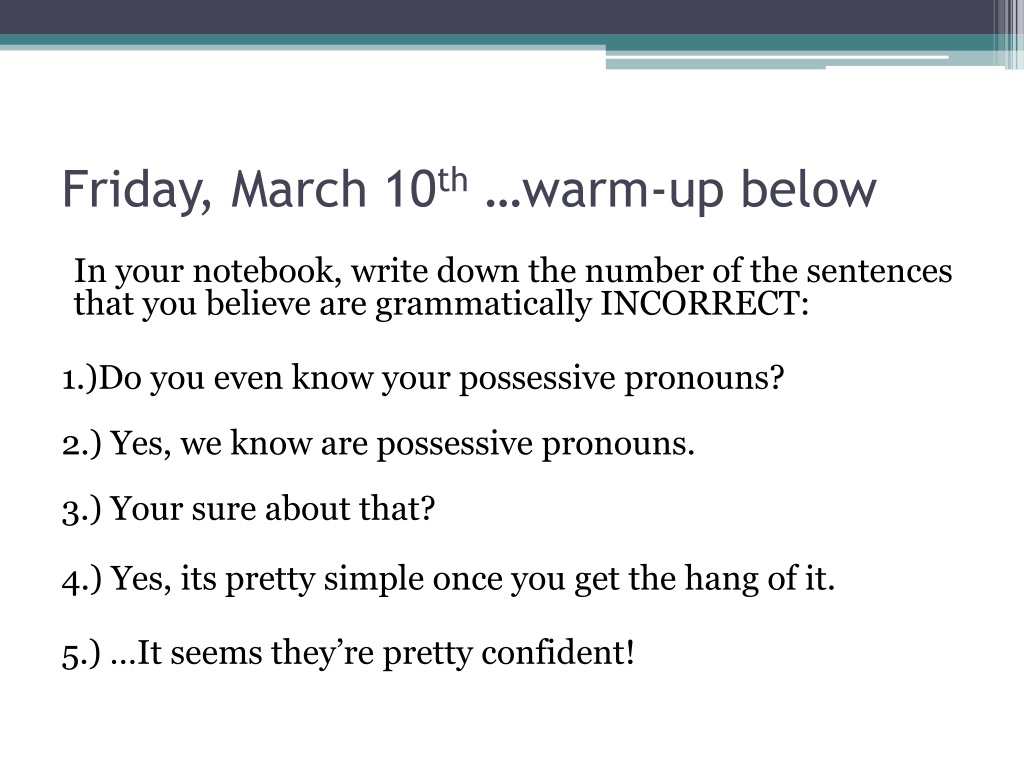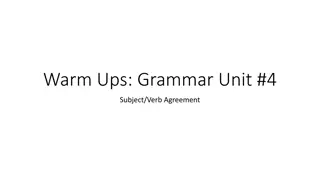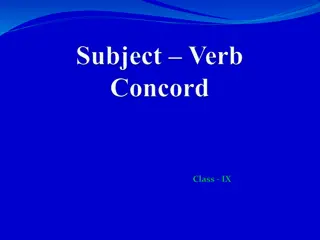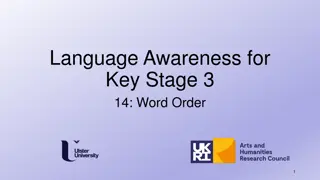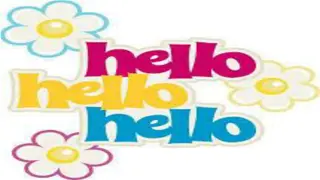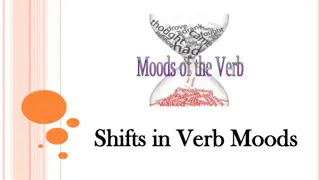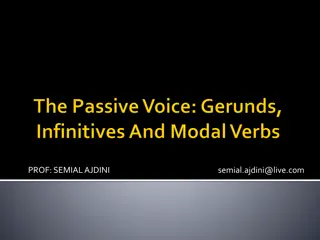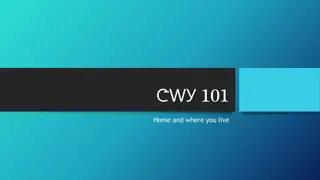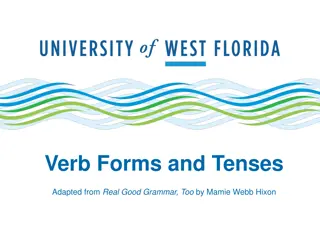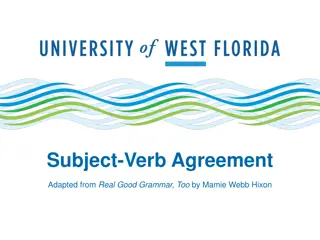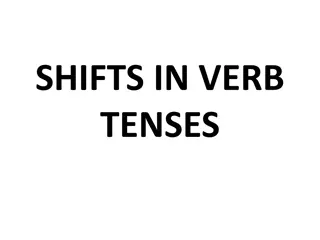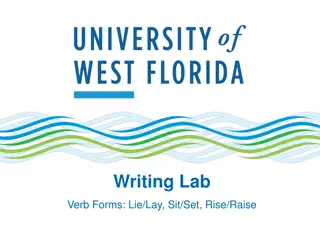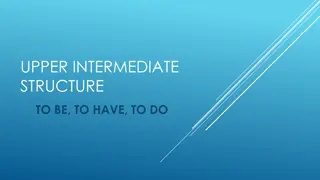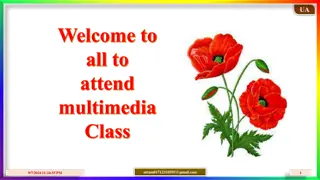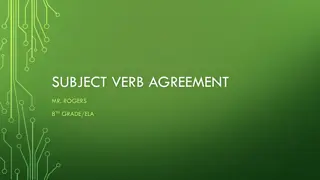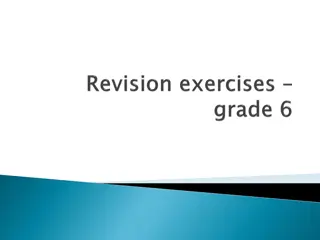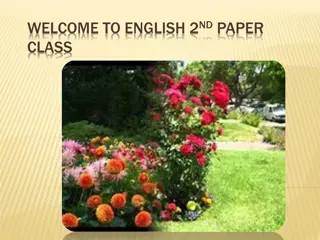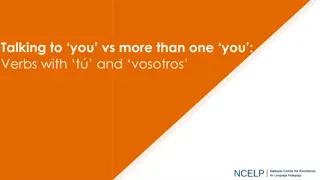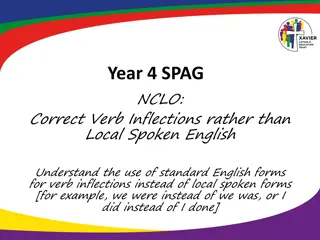Understanding Verbs: Types and Examples
Explore the world of verbs by understanding the different types - action, state of being, linking, and helping verbs. Learn how verbs express action, existence, or connection in sentences through clear examples and definitions. Dive into recognizing and identifying verbs in various contexts to enhance your language skills.
Download Presentation

Please find below an Image/Link to download the presentation.
The content on the website is provided AS IS for your information and personal use only. It may not be sold, licensed, or shared on other websites without obtaining consent from the author. Download presentation by click this link. If you encounter any issues during the download, it is possible that the publisher has removed the file from their server.
E N D
Presentation Transcript
Friday, March 10thwarm-up below In your notebook, write down the number of the sentences that you believe are grammatically INCORRECT: 1.)Do you even know your possessive pronouns? 2.) Yes, we know are possessive pronouns. 3.) Your sure about that? 4.) Yes, its pretty simple once you get the hang of it. 5.) It seems they re pretty confident!
Today we will: Review last night s homework Define what a verb is Distinguish between action, being, linking and helping verbs Identify different types of verbs in sentences Maybe SSR
Todays Essential Questions What is a verb? What are the different types of verbs?
Verbs What is a verb and what are the different types of verbs?
Verb Definition A verb expresses an action, states something that exists (state of being), or links the subject with a description.
Action Verb An action verb tells what the subject is doing. Example: Bob threw the ball.
Find the action verbs in the following sentences. 1. The wolf ran across the sand. 2. Sit down. 3. The dog barked at the man.
Being Verbs State existence Also included as helping and linking verbs 1. am 4. was 7. being 2. is 5. were 8. been 3. are 6. be
Find the state of being verbs in these sentences. 1. My uncle is a pilot. 2. The pie looks good. 3. You seem upset.
Linking Verbs Connects or links a subject to a noun or an adjective in the predicate that renames or describes the subject. Example: Susan looked happy. I feel shakey whenever I hear about earthquakes. **(Remember, the predicate is the part of a sentence that contains a verb and states something about the subject.)
Common Linking Verbs smell look taste feel remain turn appear become sound seem grow stand being verbs
Pick out the verbs in these sentences and tell whether they are action verbs or linking verbs. 1. Suddenly someone sneezed loudly. 2. There are holes in my shirt. 3. He appears happy.
Verb Phrases and Helping Verbs Sometimes a verb can be more than one word. When a verb is more than one word, it is called a verb phrase. Verb phrases can be two, three, or four words. Using helping verbs with another verb makes a verb phrase. These verbs HELP to form the verb phrase. Ex.: I am walking as fast as I can. Tara had been watching the program. Greta has forgotten her lunch.
Common Helping Verbs shall had will has should do would did could must can may have verbs of being
Instructions: Pick out the verb phrases in these sentences. 1. You are going to Seattle. 2. You have been resting too much. 3. We must be early. 4. I will be finished shortly.
Todays Essential Questions What is a verb? What are the different types of verbs?
Closing Time Please Define: Action Verb Being Verbs Linking Verbs Helping Verbs
Remember Action verbs tell what the subject is doing Being Verbs state existence Linking Verbs connects the subject to a descriptor Helping Verbs used with another verb to make a verb phrase
